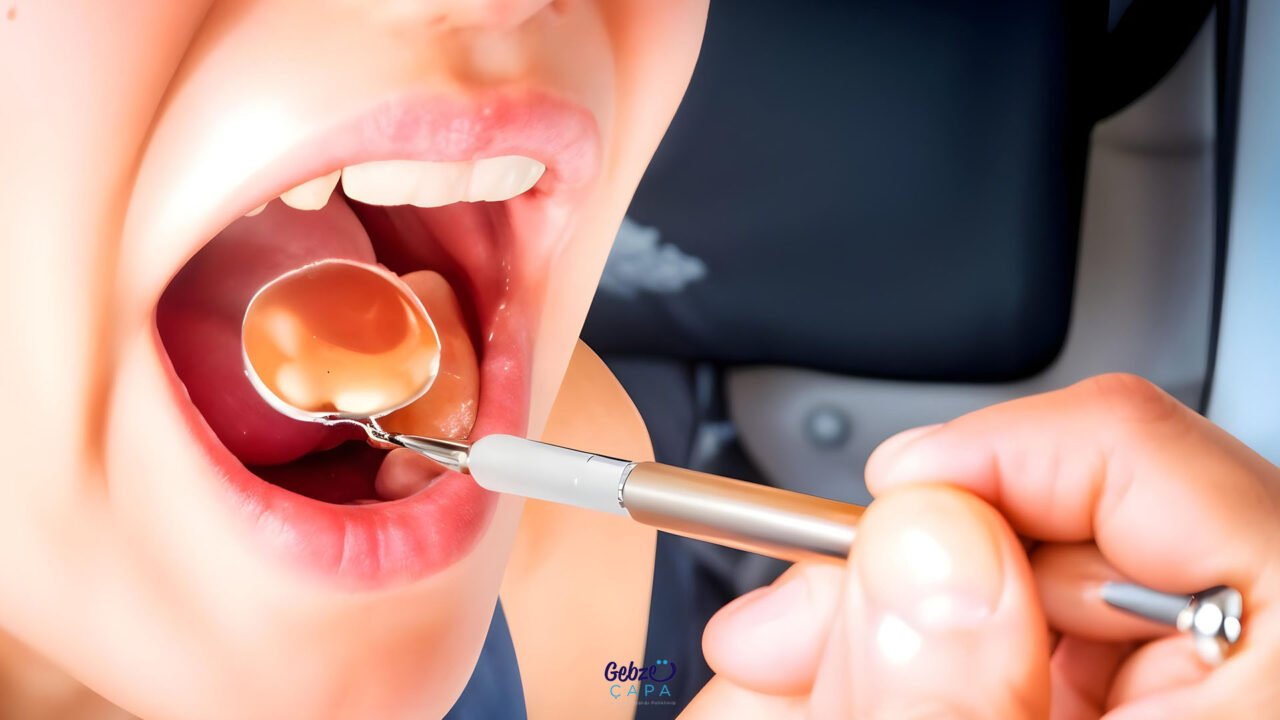How to Treat Palate Inflammation
Even minor discomforts that can be ignored can negatively affect our daily quality of life. One of these discomforts is palate inflammation. Palate inflammation is a condition that occurs as a result of irritation or infection of the palate tissue in the mouth. It usually manifests itself with symptoms such as pain, redness, swelling and tenderness. In some cases, complaints such as small wounds, burning sensation and difficulty in eating can also be seen.
There are many different factors that cause palate inflammation. Inadequate oral hygiene, consuming extremely hot or spicy foods, gum diseases, allergic reactions, weakened immune system or infections are the main causes of this discomfort. In some cases, vitamin and mineral deficiencies can also negatively affect palate health and lead to inflammation.
Causes of Palate Inflammation
Palate inflammation is a disorder that occurs as a result of irritation or infection of the sensitive tissues in the mouth. There can be many different causes of this condition. The most common causes are inadequate oral hygiene. Not brushing teeth regularly, not using dental floss, and neglecting oral care can cause bacteria to accumulate and cause infections in the palate tissue. In addition, tooth and gum problems are among the factors that negatively affect palate health. Gum diseases, cavities, and infected tooth roots can damage the palate over time and cause inflammation.
Eating habits can also directly affect palate health. Consuming very hot or very cold foods, excessive consumption of spicy and acidic foods can irritate the palate tissue. Especially spicy and acidic foods can cause sensitivity in the mouth and trigger inflammation. In addition, some people may have allergic reactions to certain foods or chemicals found in oral care products. Such allergic conditions can cause redness, swelling, and sensitivity in the palate.

Smoking and alcohol use also have serious negative effects on oral health. Smoking causes the tissues in the mouth to dry out and become sensitive, while excessive alcohol consumption can disrupt the oral flora and pave the way for infections. A weakened immune system is another factor that causes palate inflammation to occur more easily.
Stress, poor nutrition and sleep disorders can weaken the immune system, making it harder for the body to fight infections. When the immune system is weakened, fungal and bacterial infections can spread more easily in the mouth.
Symptoms of Palate Inflammation
People with palate inflammation may experience the following symptoms:
- Pain and tenderness: Pain may occur in the palate while eating or consuming hot or cold drinks.
- Swelling and redness: The inflamed area may usually be red and swollen.
- Burning sensation: There may be a burning sensation in the palate when spicy or acidic foods are consumed.
- Bad breath: Bad breath may occur due to infection.
- White or yellow plaques: White or yellowish plaques may form on the surface of the palate due to bacterial or fungal infections.
Home Treatment Methods for Palate Inflammation
Palate inflammation can usually be cured with methods that can be applied at home in mild cases. Here are the natural treatment methods you can use to relieve palate inflammation:
- Gargle with Salt Water
Salt can accelerate the healing of the infection by killing bacteria in the mouth thanks to its antiseptic properties. You can gargle by adding a teaspoon of salt to a glass of warm water. It is recommended to apply 2-3 times a day.
- Gargle with Carbonated Water
Baking soda can prevent the growth of bacteria by maintaining the pH balance in the mouth. You can gargle by adding a teaspoon of baking soda to a glass of water.
- Gargle with Sage Tea
Sage is known as a natural antiseptic. You can reduce inflammation by gargling with sage after brewing and cooling it.
- Honey and Turmeric Mixture
Honey has antibacterial properties, while turmeric is known for its anti-inflammatory effect. You can mix a teaspoon of honey and half a teaspoon of turmeric and apply it to the inflamed area.
- Cold Compress
You can gently press ice cubes wrapped in a clean cloth to the palate area to relieve swelling and pain.

When is Palatal Inflammation Dangerous?
Palatal inflammation usually heals within a few days. However, it is important to consult a doctor if:
- The inflammation does not go away for several weeks
- There are systemic symptoms such as high fever and fatigue
- There is pus or a bad smell in the mouth
- There is difficulty swallowing
If the immune system is weak (for example, diabetics or those undergoing chemotherapy)


